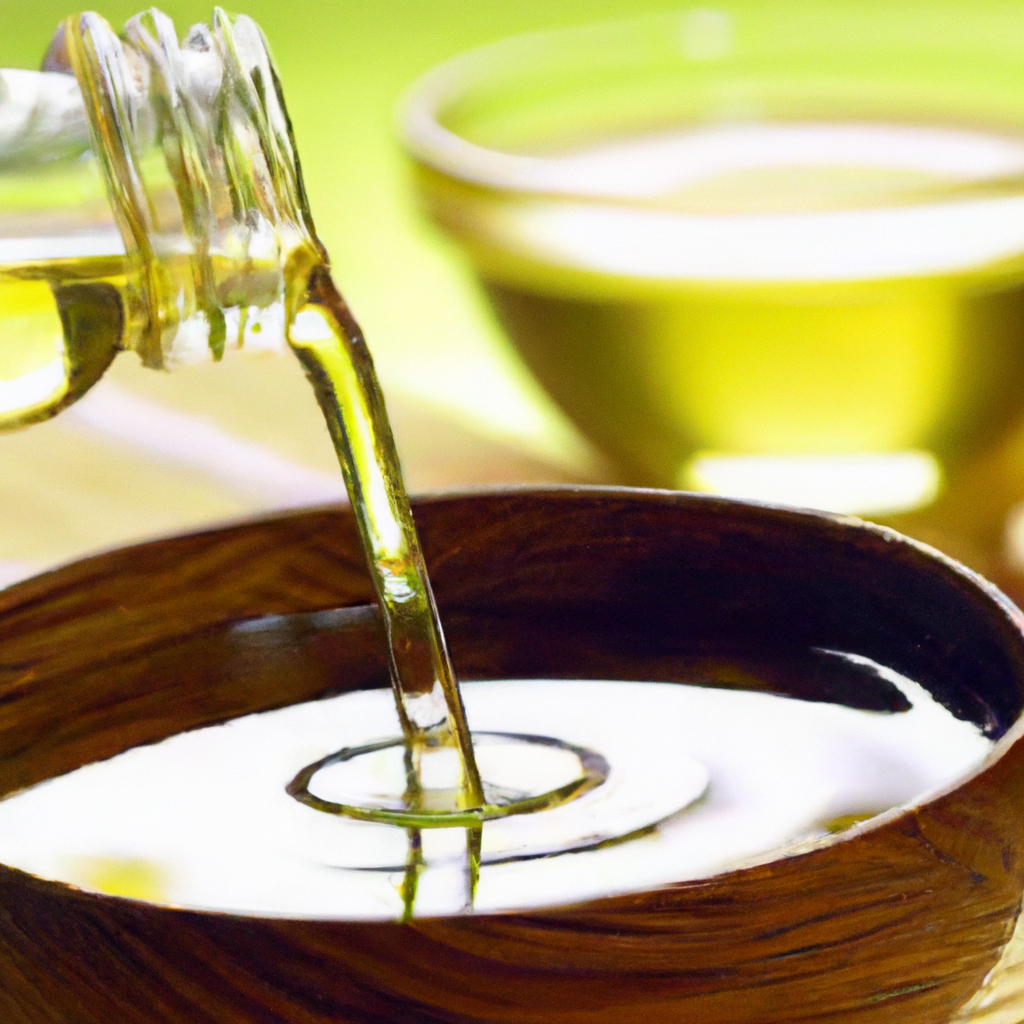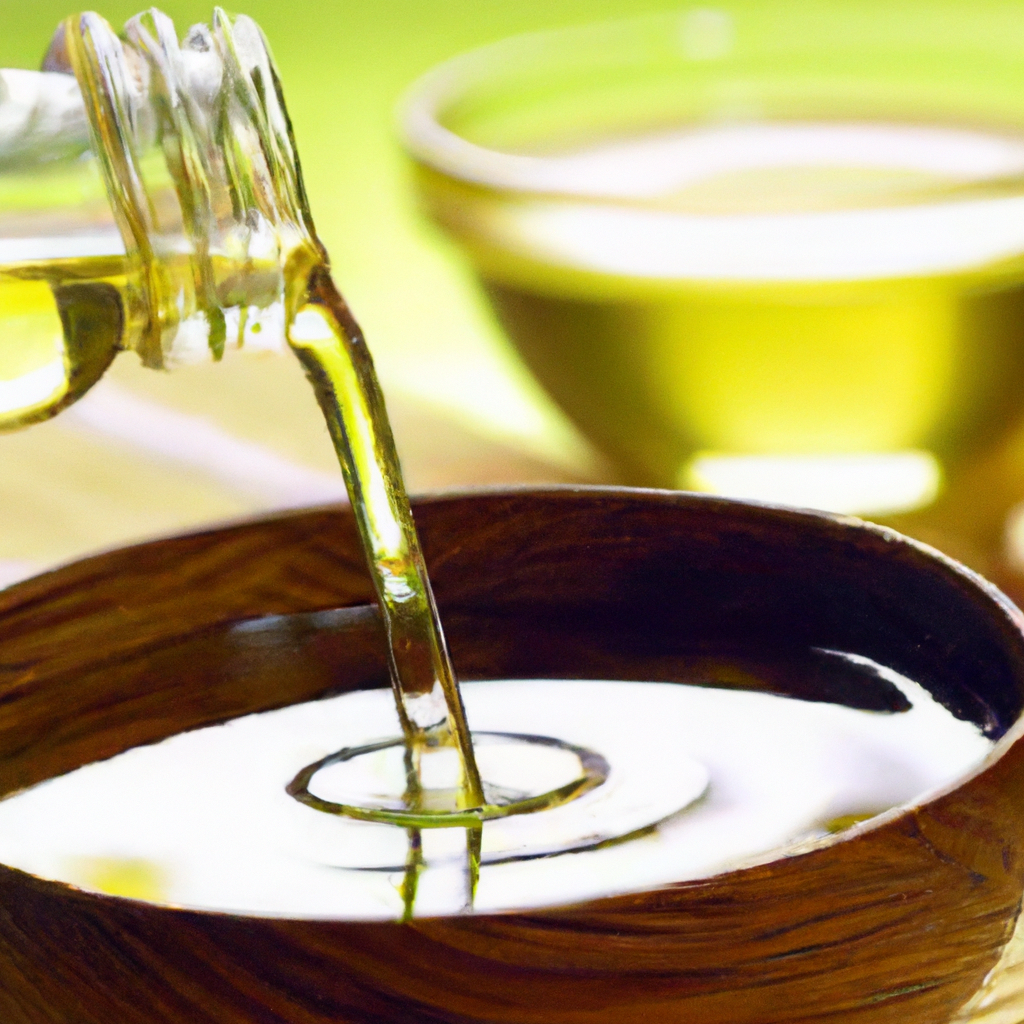Are you feeling overwhelmed by the pressures of everyday life? Look no further than herbal remedies for stress relief. In this article, you will explore the wonderful world of natural remedies that can help you find peace and calm in the midst of chaos. Discover the power of herbs such as lavender, chamomile, and ashwagandha, and learn how they can soothe your mind and body. Say goodbye to stress and hello to relaxation with these incredible herbal remedies.

Overview of Stress and its Effects
Stress is a common experience in our fast-paced and demanding modern lives. From work pressures to personal responsibilities, it’s easy to feel overwhelmed and stressed out. Understanding stress and its effects is crucial to managing it effectively.
Understanding Stress
Stress is the body’s natural response to any demand or threat. When you encounter a stressful situation, your body releases hormones such as adrenaline and cortisol, gearing you up for a fight or flight response. While this response is helpful in the short term, chronic stress can have detrimental effects on your physical and mental well-being.
Effects of Chronic Stress
Living with chronic stress can lead to a wide range of health problems. Physically, it can weaken your immune system, increase the risk of cardiovascular diseases, and disrupt your sleep patterns. Mentally and emotionally, chronic stress can contribute to anxiety, depression, irritability, and difficulty focusing. It can even impact your relationships and overall quality of life.
Benefits of Herbal Remedies for Stress Relief
While there are various approaches to managing stress, herbal remedies offer a natural and holistic way to find relief. Here are some key benefits of incorporating herbal remedies into your stress management routine.
Natural and Holistic Approach
Herbal remedies are derived from plants and have been used for centuries in traditional medicine practices worldwide. Unlike pharmaceutical drugs, herbal remedies tend to work in harmony with your body’s natural processes. They focus on addressing the root causes of stress rather than simply masking the symptoms.
Reduced Side Effects
One significant advantage of herbal remedies is their limited side effects compared to traditional medications. Many prescription drugs used for stress and anxiety management come with a laundry list of potential side effects, including drowsiness, dizziness, and even dependency. Herbal remedies, on the other hand, are generally considered safe and have minimal adverse effects when used correctly.
Variety and Availability
Another benefit of herbal remedies is the wide array of options available. From teas and essential oils to supplements and tinctures, there is something to suit everyone’s preference and lifestyle. Additionally, herbal remedies can usually be found easily in health food stores, online retailers, or even grown in your own garden.
Best Herbal Remedies for Stress Relief
Now that we understand the advantages of herbal remedies, let’s explore some of the most effective options for stress relief.
1. Chamomile
Chamomile is well-known for its calming properties. It can help reduce anxiety, promote sleep, and soothe an upset stomach. Whether enjoyed as a warm cup of tea or used as an essential oil for aromatherapy, chamomile is a go-to remedy for stress relief.
2. Lavender
Lavender is a versatile herb that offers numerous benefits for stress reduction. Its gentle scent has a calming effect on the nervous system, promoting relaxation and improved sleep quality. Lavender essential oil can be diffused, applied topically, or added to bathwater for a soothing experience.
3. Lemon Balm
Lemon balm is a member of the mint family and has been used for centuries to reduce anxiety and promote relaxation. This herb has a mild lemony flavor and can be enjoyed as a tea or taken in the form of a supplement.
4. Ashwagandha
Ashwagandha is an adaptogenic herb commonly used in Ayurvedic medicine. It helps the body adapt to stress more effectively by reducing cortisol levels and promoting a sense of calm. Ashwagandha supplements are widely available and can be a valuable addition to your stress relief routine.
5. Valerian Root
Valerian root is a popular remedy for insomnia and anxiety. It acts as a mild sedative, helping to calm your mind and improve sleep quality. Valerian root can be brewed into a tea or taken as a supplement, but it’s important to follow recommended dosages and be aware of any potential interactions with medications.
6. Passionflower
Passionflower is a beautiful flowering plant known for its calming effects. It can help reduce anxiety, induce relaxation, and improve sleep. Passionflower can be brewed into a tea or taken as a supplement for stress relief.
7. Rhodiola Rosea
Rhodiola Rosea is an adaptogenic herb that enhances the body’s ability to cope with stress. It can improve energy levels, mood, and cognitive function. Rhodiola Rosea is available in supplement form and is commonly used by individuals looking to enhance their stress resilience.
8. Ginseng
Ginseng is a powerful adaptogen with a wide range of health benefits. It helps the body respond to stress more efficiently and can improve energy levels and mental clarity. Ginseng can be taken as a supplement or consumed in the form of herbal teas.
9. Holy Basil
Holy Basil, also known as Tulsi, is considered a sacred herb in Ayurvedic medicine. It has been used for centuries to alleviate stress and promote overall well-being. Holy Basil tea is a popular choice, and its adaptogenic properties make it a valuable addition to any stress relief routine.
10. Kava Kava
Kava Kava is a tropical plant known for its anxiety-reducing properties. It promotes relaxation and can help ease stress-related symptoms such as tension and restlessness. Kava Kava can be consumed as a tea or taken in supplement form, but it’s important to use it responsibly and be aware of potential liver-related side effects.
How to Use Herbal Remedies
Now that we’ve explored some of the best herbal remedies for stress relief, let’s discuss how to incorporate them into your daily routine.
1. Herbal Teas
Herbal teas are a simple and enjoyable way to experience the stress-relieving benefits of herbs. Brew a cup of your chosen herbal tea and sip it slowly, allowing yourself to relax and unwind.
2. Essential Oils
Essential oils can be used topically or aromatically to promote relaxation and reduce stress. Dilute a few drops of your chosen essential oil in a carrier oil and apply it to your temples, wrists, or the back of your neck. You can also diffuse the oil in a diffuser or add it to your bathwater.
3. Herbal Supplements
Herbal supplements offer a convenient way to incorporate the benefits of herbs into your routine. Follow the recommended dosage guidelines provided by the manufacturer and consult with a healthcare professional if you have any specific health concerns or are taking other medications.
4. Herbal Baths
Create a calming and therapeutic experience by adding herbal preparations to your bathwater. You can infuse dried herbs into a muslin bag or directly add essential oils to the water. Soak in the warm bath, allowing the herbal properties to soothe your body and mind.
5. Herbal Tinctures or Extracts
Herbal tinctures and extracts provide a concentrated form of the herb’s active compounds. They can be added to water, juice, or tea for easy consumption. Pay attention to the recommended dosage and consult with a healthcare professional if you’re unsure about the appropriate usage.

Precautions and Considerations
While herbal remedies can offer significant benefits for stress relief, it’s important to take certain precautions and considerations into account.
Consult a Healthcare Professional
Before incorporating any herbal remedies into your routine, it’s wise to consult with a healthcare professional, especially if you have existing health conditions or are taking medications. They can provide personalized advice based on your specific circumstances.
Be Informed about Potential Side Effects
While herbal remedies generally have fewer side effects than pharmaceutical drugs, it’s still crucial to be aware of any potential adverse reactions. Some herbs may cause allergic reactions or interact with certain medications. Educate yourself about the herbs you’re using and seek professional guidance if needed.
Avoid Combining Certain Herbal Remedies with Medications
Certain herbal remedies can interact with medications, diminishing their effectiveness or causing unwanted side effects. For example, St. John’s Wort, an herb commonly used for stress and depression, can interfere with birth control pills and antidepressant medications. Always inform your healthcare provider about any herbal remedies you’re considering.
Stick to Recommended Dosages
Just like any natural remedy, it’s essential to follow recommended dosages for herbal remedies. Taking excessive amounts can lead to undesirable effects or potential toxicity. When using herbal supplements, always read the label and follow the instructions provided by the manufacturer.
Additional Self-Care Practices for Stress Relief
In addition to herbal remedies, there are several self-care practices that can enhance your stress relief efforts.
1. Regular Exercise
Engaging in regular physical activity is a powerful way to reduce stress. Exercise releases endorphins, boosts mood, and improves overall well-being. Find activities you enjoy, whether it’s yoga, running, swimming, or dancing, and make them a part of your routine.
2. Healthy Diet and Nutrition
Eating a balanced diet provides your body with the nutrients it needs to function optimally, including during times of stress. Focus on whole foods, such as fruits, vegetables, lean proteins, and healthy fats. Stay hydrated and limit your intake of stimulants like caffeine and sugar, as they can exacerbate stress symptoms.
3. Mindfulness and Meditation
Practicing mindfulness and meditation can help calm your mind and bring a sense of peace and clarity. Set aside a few minutes each day to sit in stillness, focus on your breath, and observe your thoughts without judgment. There are many guided meditation apps and online resources available to support your practice.
4. Adequate Sleep
Getting enough quality sleep is essential for stress management. Create a soothing bedtime routine, optimize your sleep environment, and establish consistent sleep and wake times. Avoid stimulating activities or electronic devices close to bedtime. If you struggle with sleep, certain herbal remedies like chamomile or lavender can help promote relaxation and better sleep quality.
5. Social Support and Connection
Maintaining healthy relationships and seeking social support is crucial for managing stress. Lean on your loved ones, share your concerns, and don’t hesitate to ask for help when needed. Foster connections through activities, hobbies, or joining social groups that align with your interests.

The Importance of Seeking Professional Help
While herbal remedies and self-care practices can be effective in managing stress, there are times when professional help may be necessary.
Recognizing When to Seek Professional Help
If your stress symptoms persist despite your best efforts, or if they significantly interfere with your daily functioning and well-being, it may be time to seek professional help. Common signs include persistent anxiety, feelings of hopelessness, changes in appetite or sleep patterns, difficulty concentrating, and loss of interest in activities you once enjoyed.
Finding the Right Mental Health Professional
Seeking support from a mental health professional can provide you with the tools and guidance needed to effectively manage stress. Reach out to your primary care physician for a referral or conduct research to find a licensed therapist or counselor who specializes in stress management or related areas. Remember that professional help is a valuable resource and can greatly contribute to your overall well-being.
Conclusion
When stress takes its toll on your mind and body, incorporating herbal remedies and self-care practices into your routine can provide much-needed relief. From calming chamomile to adaptogenic herbs like ashwagandha and Rhodiola Rosea, the natural world offers a wealth of options for stress management. Remember to consult with healthcare professionals, be mindful of potential interactions, and explore additional avenues such as exercise, healthy eating, and social support. By taking a holistic approach to stress relief, you can restore balance and well-being to your life.





